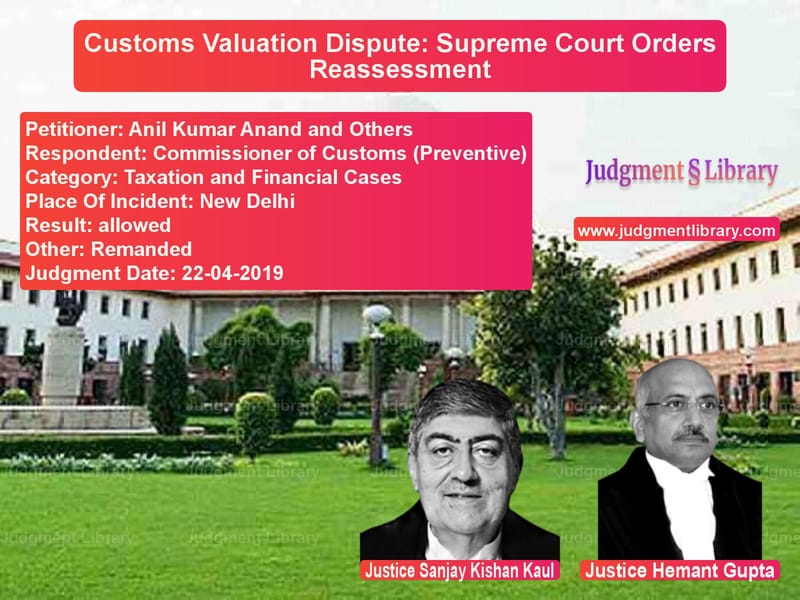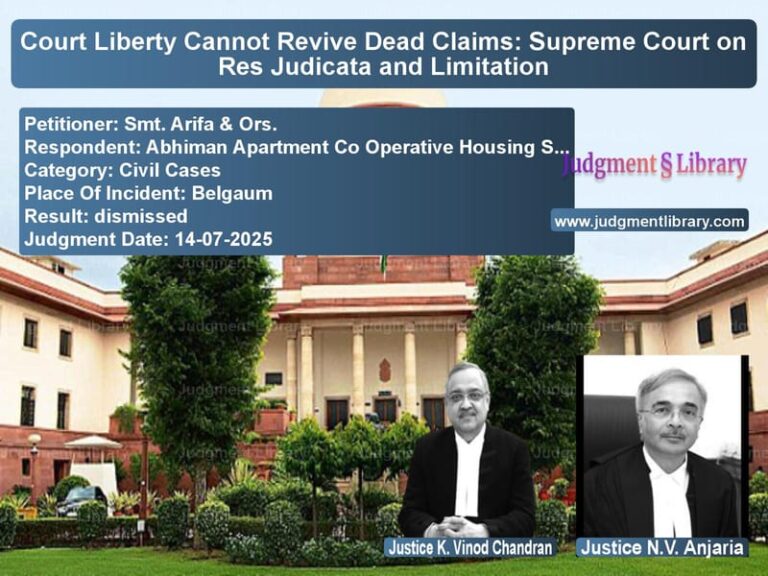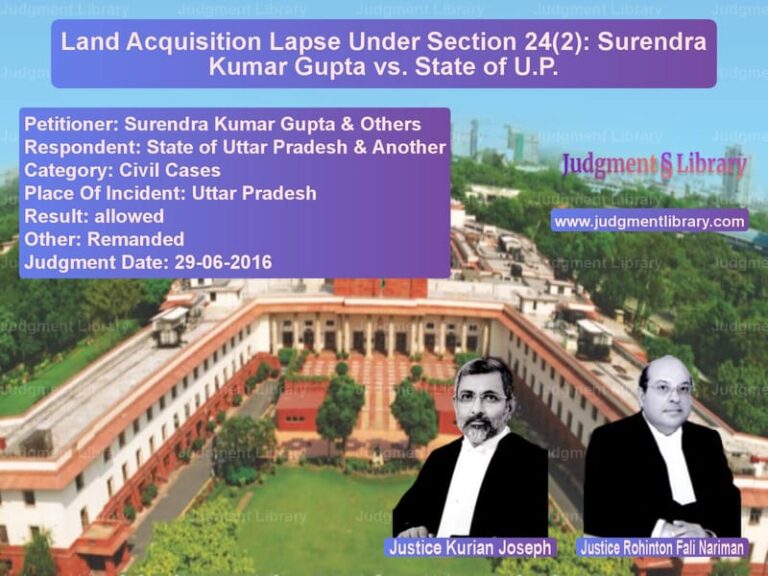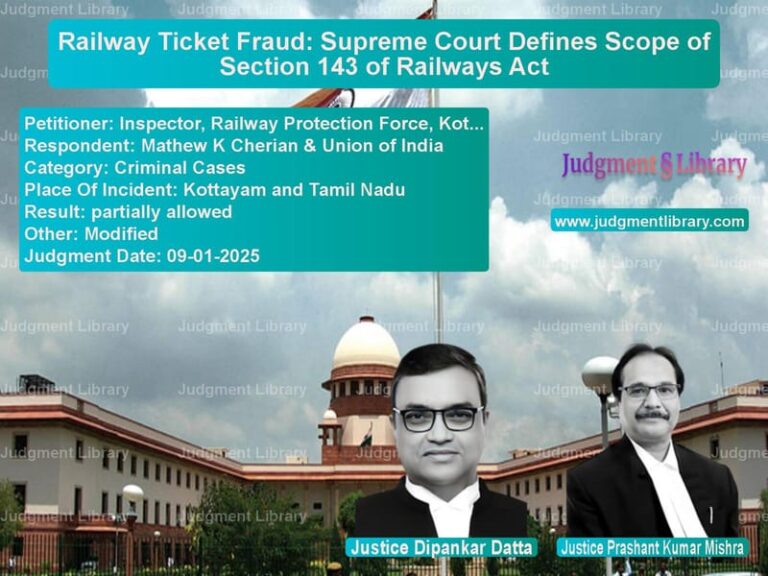Customs Valuation Dispute: Supreme Court Orders Reassessment
The case revolves around the customs valuation of imported decorative lighting under the Customs Valuation (Determination of Value of Imported Goods) Rules, 2007. The appellant, Anil Kumar Anand and Others, challenged the revaluation of their import consignments and the imposition of penalties by the customs authorities. The Supreme Court was tasked with determining whether the customs authorities had followed the correct sequential application of valuation rules.
The appellants, who imported lighting products from the UK, China, and Spain, argued that the customs officials incorrectly applied Rule 7 and Rule 9 without first exhausting Rules 3 to 5, which should be used sequentially for valuation.
Arguments of the Petitioner
The appellants contended:
- The valuation of imported goods must follow a sequential approach, starting with the transaction value of identical or similar goods under Rules 3 to 5 before applying alternative valuation methods.
- The customs authorities erred by directly applying Rules 7 and 9, bypassing the required steps.
- Imports from China and Spain, which were not from related parties, should have been considered for valuation instead of solely relying on imports from the UK.
- The brand names ‘Diyas’ and ‘mAntra’ did not hold exclusive trademark value, and their omission from customs declarations did not constitute misrepresentation.
Arguments of the Respondent
The Commissioner of Customs (Preventive) countered:
- The appellant deliberately undervalued imports and failed to declare brand names, leading to evasion of customs duty.
- The imports from the UK were from a related party, justifying revaluation under alternative rules.
- The customs officials acted within their legal authority in revaluing the goods and imposing penalties.
- The findings of the Customs, Excise & Service Tax Appellate Tribunal (CESTAT) and the Commissioner should not be disturbed as they were based on proper legal interpretation.
Key Observations by the Supreme Court
The Supreme Court ruled:
“Once the statutory rules exist and provide for sequential implementation, the assessing authority has no option but to proceed in accordance with those rules, in that manner. The customs authorities failed to apply Rules 3 to 5 before proceeding to alternative valuation methods, making the assessment flawed.”
The court emphasized that customs valuation must follow a structured order, starting with the transaction value of identical or similar goods before resorting to deductive or computed value methods.
Judgment
The Supreme Court set aside the orders of the Principal Commissioner of Customs and CESTAT and remanded the matter back to the customs authorities for reassessment. The customs officials were directed to reassess the valuation by applying Rules 3 to 5 before considering alternative rules.
Thus, the petition was allowed, and the case was remanded for fresh consideration.
Petitioner Name: Anil Kumar Anand and Others.Respondent Name: Commissioner of Customs (Preventive).Judgment By: Justice Sanjay Kishan Kaul, Justice Hemant Gupta.Place Of Incident: New Delhi.Judgment Date: 22-04-2019.
Don’t miss out on the full details! Download the complete judgment in PDF format below and gain valuable insights instantly!
Download Judgment: Anil Kumar Anand and vs Commissioner of Cust Supreme Court of India Judgment Dated 22-04-2019.pdf
Direct Downlaod Judgment: Direct downlaod this Judgment
See all petitions in Customs and Excise
See all petitions in Tax Refund Disputes
See all petitions in Banking Regulations
See all petitions in Judgment by Sanjay Kishan Kaul
See all petitions in Judgment by Hemant Gupta
See all petitions in allowed
See all petitions in Remanded
See all petitions in supreme court of India judgments April 2019
See all petitions in 2019 judgments
See all posts in Taxation and Financial Cases Category
See all allowed petitions in Taxation and Financial Cases Category
See all Dismissed petitions in Taxation and Financial Cases Category
See all partially allowed petitions in Taxation and Financial Cases Category







